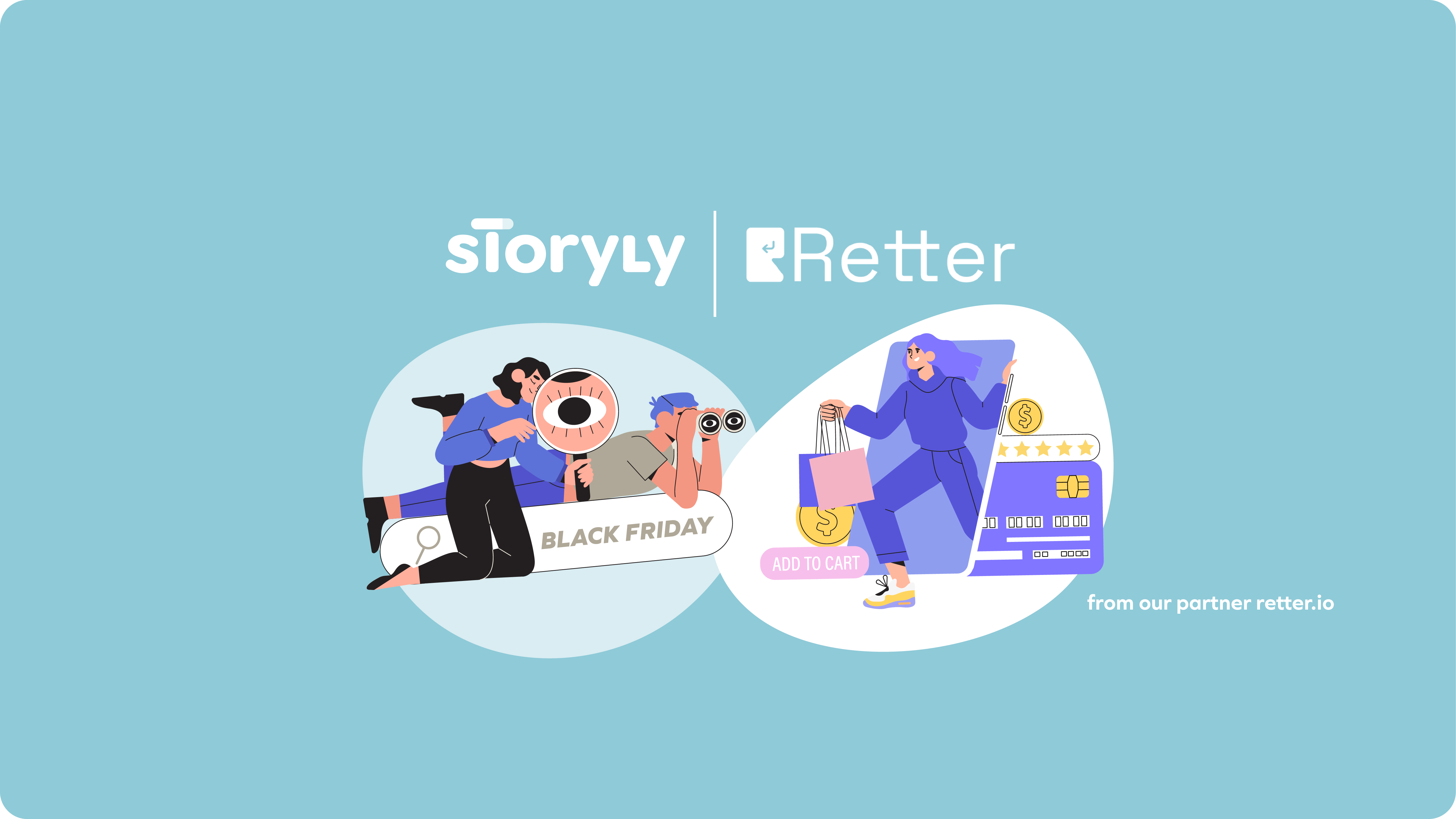Online buying has become a crucial component of the shopping experience for millennials as a result of the growth of e-commerce and the growing reliance on technology in daily life. Millennials, a technologically advanced and online-connected age, have high standards for online purchasing. They seek out experiences that are practical, tailored, ethical, and value-driven. Therefore, in order to satisfy their wants and remain competitive in the market, firms must comprehend what millennials look for while purchasing online. The main millennial expectations for online purchasing will be discussed in this article.
Who are Millennials?
Millennials, also known as Gen Y, are born between 1981 and 1996. Millennial demographic cohort is aged between 27 and 42 in 2023. They are most probably the children of baby boomers who were born from 1946 to 1964, and late millennials are the parents of Generation Alpha who are born from late 2010 and onwards.
Millennials are described as the first global generation and the first generation that grew up in the times where the Internet became widely available to the public for general use, in other words, the Internet age. They are marked as the generation whose usage of and familiarity with the internet and social media is elevated. This is why they are called “digital natives.” and the other generations that come after are called so due to the increase in the use of technological advancements. They can consume digital information and stimuli quickly and comfortably through electronic devices. This generation also went through economical and social challenges such as 9/11 and The Great Recession.
Importance of Millennials as a consumer group
A McKinsey report states that “Companies that win millennials' business stand to enjoy robust economic growth for years to come.” In 2015, millennials surpassed baby boomers as the largest living generation in the US. In 2022, they are marked as 73.2 million people in the US. Millennials already have an annual spending of $2.5 trillion, and that spending will increase as their income reaches $8.3 trillion by 2025 (versus $6.4 trillion for Gen Xers and $1.1 trillion for baby boomers). As younger millennials start working and older millennials progress in their careers, the generation’s overall income and spending is anticipated to increase.
Forward-looking companies are seeking ways to influence the millennial cohort as millennials are critical to future growth and value-creation. Again, the McKinsey research showed that in the millennial cohort, there are 7 different distinct segments. Companies aiming to target millennials should consider these different segments when coming up with strategies:
1- Economizers
2- Risk Avoiders
3- Diligent loyalties
4- Premium enthusiasts
5- YOLO-ers
6- Showcasers
7- Explorers

Significance of online shopping for Millennials
As millennials were born in the Internet age in which the smart-phone use and online communication were growing fast, they are used to online interaction. Also, with the COVID-19 Pandemic and the prevalence of digital payments such as BNPL (Buy Now, Pay Later) and cryptocurrency, their spending habits have shifted more toward digital. A survey showed that millennials made 60% of their purchases online in 2019.
According to a 2022 research by a Berkshire Hathaway Company:
- 80% of millennials do most of their shopping online.
- 73% of millennials reported that they have changed their shopping habits to digital due to the pandemic.
- 54% of millennials state that their shopping preferences are shaped by Facebook (28%) and Instagram (27%).
- 30% of millennials made at least one online purchase with cryptocurrency.
What do Millennials expect while shopping online?
Saving the most money and finding the best deals are the most important drivers of online shopping among millennials with 63%. A convenient checkout process with 42% and product recommendations with 22% were also important drivers in 2022 and these statistics were significantly higher than three years ago.
Here are some of the key things that millennials expect while shopping online:
- Convenience
- Personalization
- Social responsibility
- Fair prices and value
- User-generated content
- Mobile optimization
- Easy returns
- Free shipping
- Product reviews and ratings
- Loyalty programs
Convenience
Convenience is one of priorities of the millennials. Convenient pick up or return (including BOPIS, buy online, pick-up in store) is important for most millennials. They want a seamless and easy online shopping experience. They expect to be able to find what they are looking for quickly, easily and make a purchase without any hassle.
According to a survey conducted by BigCommerce, 67% of millennials prefer to shop online rather than in-store due to the convenience factor. The same survey found that 59% of millennials say that they are loyal to brands that offer a convenient shopping experience.
A report by Salesforce found that 74% of millennials expect companies to offer a seamless experience across all channels, including online shopping.
A very recent article on Forbes mentions that millennials expect the online store to have an easy and hassle-free return and exchange policy.


Personalization
Millennials expect online stores to cater to their individual needs and preferences. This includes personalized recommendations based on their purchase history, search history, and browsing behavior.
67% of consumers (73% of Gen Z and 70% of Millennials) say it’s important for brands to provide them with a personalized experience.
A report by Adobe demonstrated that while shopping online or in-store, 78% of millennials expect to receive personalized promotions or offers based on their spending habits.
A survey by McKinsey highlighted the importance of personalization, by showing that 78% of people overall tend to repeat purchases from companies that offer personalized experience. Also, companies that offer personalization grow faster.
Social responsibility
A report by IBM shows that millennials may be leading the charge in sustainability awareness, every age group indicates that sustainability, environmental, and/or personal wellness attributes are significant considerations in selecting brands.
The same report demonstrates that despite how much millennials trust a brand, they will conduct extensive research on the list of ingredients on a label, how products are made or processed, as well as how they are delivered prior to making their purchases
An article from Harvard Business Review states that millennials are environmentally conscious and want to shop from stores that have sustainable practices and offer eco-friendly products.


User-generated content
User-generated content (UGC) has become an effective and trustworthy component of modern content strategies and became another driver for millennials to make a purchase decision. They tend to make their purchase decisions based on recommendations from their families and friends. At this point, UGC shines as it is a personal recommendation from a real person.
Millennials (ages 25 and above) are the biggest content drivers — contributing over 70% of all UGC.
An article by Business2Community, millennials believe that UGC is 35% more memorable than other media.
As opposed to UGC, 1% of Millennials say a compelling advertisement would make them trust a brand more.
Mobile optimization
The combination of millennial preferences and the massive migration to mobile has brought online marketing to mobile. Mobile technology has changed the means of marketing and millennials are leading the direction of marketing at least for a decade as they are the biggest consumer group. One of the factors that millennials consider when they are online shopping is that the website is mobile friendly. On top of that, they usually make purchases on their mobiles. So the mobile is the first device that they use for online shopping. An article suggests that for millennials the page loading time is also influential when it comes to pursuing a purchase decision.
Millennials also take the content of the page into account. They prefer the text on a website to be optimized for mobiles.
In mobile, they prefer images since images tend to attract stronger than text. Therefore, the smaller chunk of texts are more preferable for mobile viewing. Videos are also useful to take the attention of millennials but some millennials report that videos can sometimes be distracting.
Attribution and analytics are important to mobile success. To boost mobile conversion rates, it is essential to use data analytics (e.g., Google Analytics). To attract millennials, creating a convenient mobile shopping experience is a must.
Fast shipping
It is critical for millennials to receive what they order fast. According to a Deloit survey, millennials are willing to pay more and see a value in getting orders quicker. Also, millennials are not spending as much time looking for a deal as they are looking for instant delivery. The same study found that millennials were willing to pay an average of $5.50 to get their order the same day during the holiday season, while the average of non-millennials is $3.80. For next-day delivery, millennials were willing to pay an average of $3.90 per order, whereas the non-millennials’ average is $2.60. The survey found millennials are more willing to take advantage of free shipping and discounts on expedited shipping. Another study found that 56% of millennials expect same-day delivery. 64% of them said they were more likely to make a purchase if there was a same-day option, whereas 40% of non-millennials reported that.
Product reviews and ratings
Millennials put attention to product reviews and ratings. More than half of millennials say that they “almost always research before buying,” which is sharply higher than other cohorts. They are more likely to rely on brand and product recommendations obtained via word of mouth, online reviews, and social media. Also, 97% of millennials say that they seek out negative reviews and 60% say they specifically seek out one-star reviews. It's to see what would be the worst-case scenario. Most company wouldn’t like negative comments or ratings on their product. However, millennials find them genuine. 47% of millennials surveyed say they’re suspicious of products with a perfect five-star rating.
Ratings and reviews provide a unique means to construct brand trust and authenticity for consumers, and even negative reviews can help achieving the objective of establishing consumer trust and transparency.
A survey concluded that 53% of millennials state that they provide reviews multiple times per month. It is slightly lower than Gen Xers (54%) and Gen Zers (56%) but it’s higher than that of Boomers (47%). The same survey also found that 73% of millennials say an incentive would motivate them to write a review. The most enticing incentive that was reported for millennials is receiving a free product sample. However, there are other incentives that intrigue millennial shoppers, including early access to a product (84%), discounts (74%), and loyalty points (65%).
Loyalty programs
Millennials consider loyalty programs important when making a purchasing decision. An article by Oracle found that 70% of millennials report that loyalty programs affect their brand choices. They understand the value of loyalty programs and are more willing to pay a premium in exchange for valuable perks such as the free shipping provided by Amazon Prime. According to a recent survey, 66% of millennials would switch brands and change where they buy to get more loyalty rewards. 66% of millennials also stated they would not be loyal to a company without a good loyalty program. Another report found that 30% of millennials are more likely to re-purchase due to loyalty programs.
All in all, having considered the importance of the millennials in online shopping, companies should seek ways to attract the millennial generation. Above, we have discussed the critical aspects that millennials look for when they are doing online shopping.














